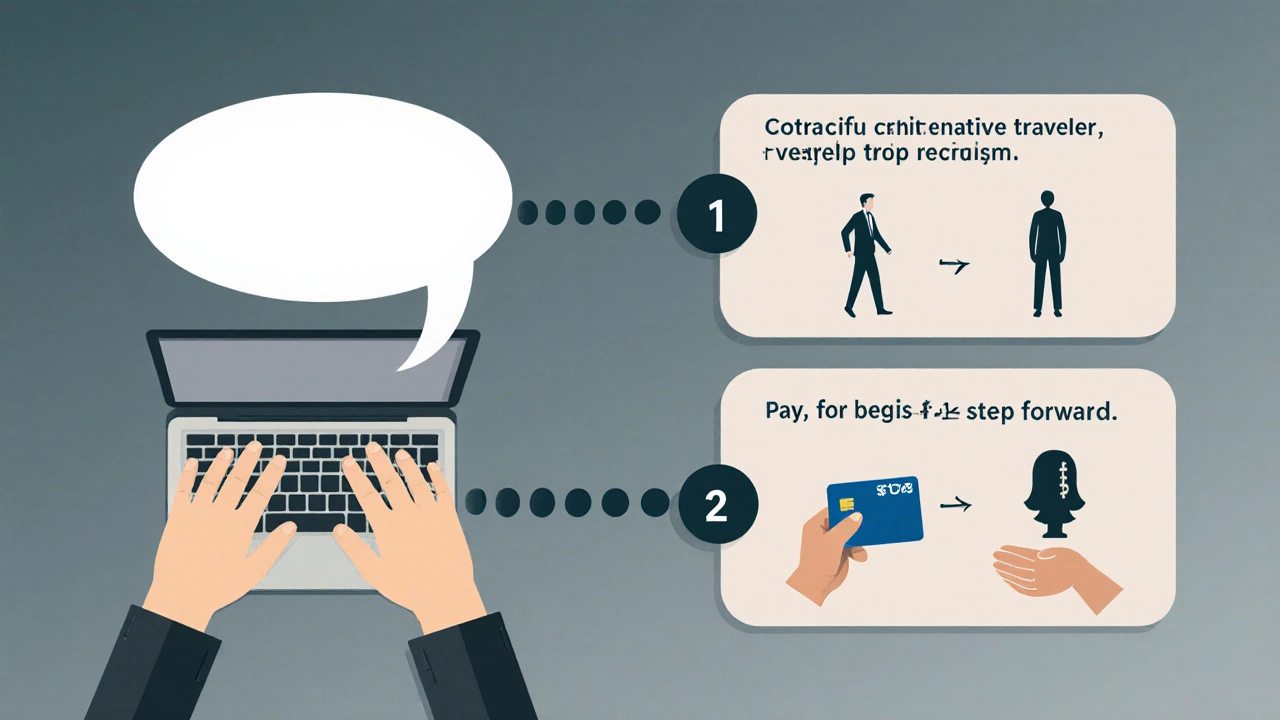Last Minute Cancellation Fee Calculator
Enter details above to see estimated cancellation fees.
Ever booked a getaway, then had to pull the plug a day before departure? You probably felt a pang of guilt and wondered if you’d crossed a line. The short answer: it can be rude, but the etiquette depends on why you’re canceling, who you’re affecting, and where you’re coming from. Below we break down the hidden rules, the real costs, and practical ways to bow out without burning bridges.
Understanding Last Minute Cancellation
Last minute cancellation is the act of calling off a plan, reservation, or commitment within a few days-or even hours-of the scheduled start date. Travel agencies, airlines, and event organizers typically define “last minute” as any change made less than 48 hours before the departure or start time. The later you cancel, the higher the chance you’ll incur fees, lose deposits, or disappoint other parties.
Why It Feels Rude: Social Norms and Expectations
Social norms are the unwritten rules that guide behavior in a group. When a group plans a vacation, each member assumes everyone will honor their commitment. Canceling at the eleventh hour threatens that shared expectation, forcing others to rearrange flights, rebook hotels, or even scrap the trip entirely. That breach of trust is why many instinctively label it “rude.”
Cultural Differences in Cancellation Etiquette
What counts as rude in one culture may be perfectly acceptable in another. In the United States and much of Western Europe, punctuality and firm commitments are prized; a last‑minute pull‑out is often seen as inconsiderate. In contrast, many African and some South‑American societies place a higher value on personal circumstances and family obligations-cancelling because of a sudden illness is rarely judged harshly.
In East Asian cultures, especially Japan and South Korea, group harmony (wa) is paramount. Canceling last minute can be viewed as a loss of face for the entire group, so people tend to notify the organizer as early as possible, even if it means paying a penalty.
Practical Impacts: Refund Policies & Costs
Refund policy outlines how much money you get back after a cancellation. Airlines often charge up to 100 % of the ticket price if you cancel within 24 hours of departure, while hotels may forfeit the first night’s stay. Understanding these terms before you book can help you weigh the financial fallout against the personal reason for canceling.
Don’t forget airline change fees. Some carriers offer flexible tickets that waive fees, but the cheaper “non‑refundable” options lock you into a higher penalty. Knowing the fine print can spare you a nasty surprise on your credit‑card statement.

Relationships at Stake: Friends, Family, Business
Friendship dynamics describe how friends interact, support each other, and resolve conflicts. If you cancel a group trip with close friends, they may feel abandoned, especially if they’ve already paid deposits or rearranged work schedules. The impact is magnified when the group is small; losing one person can jeopardize the whole plan.
Family trips carry a similar weight, but they often come with an added layer of emotional expectation. Canceling a reunion because of a work deadline might be understandable, but it can still sting if relatives have traveled long distances to meet.
Business travel has its own etiquette. Canceling a conference at the last minute can damage professional credibility, upset sponsors, and potentially void contracts.
Workplace and Event Planning Consequences
Workplace policies usually require employees to give at least two weeks’ notice for time‑off requests. When a travel plan is tied to work-like a client visit or training session-last‑minute cancellation forces colleagues to fill gaps, may delay project timelines, and can reflect poorly on reliability.
Event planning involves coordinating venues, vendors, and attendees. A sudden drop‑out can lead to wasted deposits, empty seats, and extra workload for the organizer. Many event planners include “cancellation clauses” precisely to protect themselves from these scenarios.
How to Cancel Gracefully: Steps & Tips
- Act Immediately: As soon as you know you must cancel, notify the organizer. The faster you act, the more options remain for rebooking or finding a replacement.
- Explain Honestly: Share a concise, truthful reason. Whether it’s a medical emergency or a work crisis, honesty builds trust.
- Offer Alternatives: Suggest a new date, a friend who can take your spot, or a partial reimbursement if you’ve already paid.
- Cover the Costs: If you’re liable for fees, offer to pay them directly. This shows you respect the group’s investment.
- Apologize Sincerely: A brief, heartfelt apology goes a long way. Avoid vague statements like “Sorry for the inconvenience”; instead say, “I’m sorry I caused extra work for you.”

When It’s Acceptable: Legitimate Reasons to Cancel
- Sudden illness or injury (especially if confirmed by a doctor).
- Family emergency, such as a death or severe illness.
- Unforeseen work obligations that can’t be delegated.
- Natural disasters or travel bans that make the trip unsafe.
- Loss of passport or critical travel documents.
Even with these reasons, following the grace steps above still matters. A transparent approach reduces the perception of rudeness.
Early vs. Late Cancellation: Quick Comparison
| Aspect | Early Cancellation (≥48 h) | Last Minute Cancellation (<48 h) |
|---|---|---|
| Financial Cost | Usually refundable or low fee | High fees, often full price loss |
| Organizer Stress | Low - time to find replacement | High - scramble for alternatives |
| Relationship Impact | Minor - shows respect for others’ time | Potential strain - appears selfish |
| Reputation | Maintained - seen as reliable | Damaged - may be labeled flaky |
Quick Checklist Before You Hit ‘Cancel’
- Read the refund and cancellation policy of every booking.
- Notify the trip organizer immediately.
- Provide a clear, honest reason.
- Offer to cover any incurred fees.
- Suggest a replacement or new dates.
- Send a sincere apology.
Mini FAQ
Is it ever okay to cancel a vacation a day before departure?
Yes, if you face a genuine emergency-like a sudden illness, a family crisis, or a travel ban. The key is to inform everyone promptly, cover any fees, and apologize sincerely.
How much should I expect to lose if I cancel a hotel booking last minute?
Most non‑refundable rooms charge the full first night’s rate, often 100 % of the reservation. Some hotels may waive the fee if you provide a medical certificate, but that’s rare.
Will canceling a group trip affect my friendships?
It can, especially if your friends have already invested money or rearranged work schedules. Mitigate damage by being transparent, offering to reimburse costs, and suggesting a future date.
Do airlines ever forgive last minute cancellations?
Only if you have a flexible or refundable ticket. Some carriers provide a 24‑hour “cool‑off” period where you can cancel without penalty, but that window closes quickly.
What’s the best way to tell a travel organizer I’m canceling?
Send a brief, direct message (email or text) as soon as you know, state the reason, acknowledge any inconvenience, and propose how you’ll cover costs or suggest a replacement.






